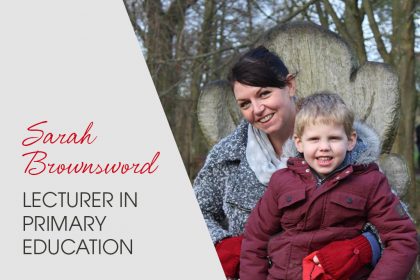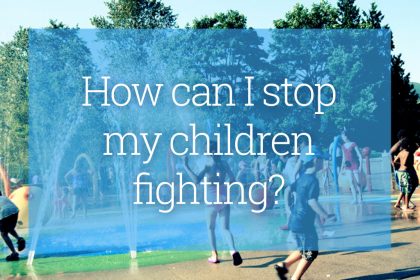Why it’s important to spend quality family time together
How much quality time do you spend as a family? Learn what ‘quality time’ really means, and how you can build stronger bonds with your partner and children.
With an ever-growing list of tasks to accomplish each day, it’s easy to let time with your partner and children slip down your priorities.
But as Kristen Harding from My Family Care explains, spending quality time together is important – it helps our children to feel more confident and secure, builds stronger family bonds and is good for our own emotional health.
What does ‘quality time’ mean?
What exactly does ‘quality time’ mean? It’s an expression we hear often but is hard to quantify – every family is different, and its meaning will vary from household to household.
For some people it may mean pulling out the board games once a week, for others it’s having in-depth conversations around the dinner table, and for some it may be enjoying a sport together.
Whatever it means to you, it’s essential that you make it a priority for yourself, your relationship and your family.
Why family time is so important to me
Spending time with my own family is something near and dear to my heart – especially as I now live in a different country to them. I count down to the Christmas holidays every year when I know we will all be together again.
I know I am lucky – not everyone has had the kind of childhood I’ve had. Most people look at our family and think ‘there’s something just a little different about them’ – and I wouldn’t change that for the world.
When we were growing up we had our moments. We argued, played tricks on each other and even tried to get our little brother to do our chores for us without anyone noticing! We had our disagreements, but through it all we were family, and we stuck with each other whether we liked it or not – through thick and thin. I’m glad I have the family I have.
Our seven-month family adventure
There are many defining moments for our family, but when I was 16 my parents made a life-changing decision – a decision that would shock and horrify some families, and maybe even cause some to crack, but for our family it was a defining seven months.
Two parents – already labelled as crazy by some of their friends – and three children (aged 16, 13 and 9) piled into a minivan with a map and a few bookings and set off on an adventure. Where we went, and what we did along the way was for us to figure out as a family.
My parents were brave, they recognised our strengths and handed over a lot of power. My littlest brother loved research, so it was his job to find out what was happening when we arrived at a new destination and present us with our options. My other brother had a budget, and it was up to him to make the money last, reigning us in every now and then.
I was an organiser (I still am) and loved to communicate and meet new people, so I was the networker – the one who made the bookings and made sure we were on schedule. Every now and then I was forced to recalculate when, four against one, it was decided we were staying in Oregon for another week – not that I complained in the long run.
Those seven months bonded our family
Spending a solid seven months in each other’s company made us realise our own strengths and weaknesses, but also those of everyone else. We learned how to support each other, and to this day there is no one I would rather have behind me than those four people.
As I mentioned, I had a very secure childhood, and I know that my experience of family is not the same as everyone else’s. But to me, a family is the people you depend on – the people who know you better than anyone else and who you can call on whenever you need a hand.
Before you have friends, teachers, colleagues, and partners, you have family. From mums and dads to siblings and relatives, the relationships you build are a starting point for all of the other interactions you have with the world, and the people in it.
Building bonds can take effort
You’ll find that the ways your family are important change throughout your life, from changing your nappies, to chauffeuring you around and teaching you to drive. From providing a shoulder to cry on when your first boyfriend or girlfriend breaks your heart to teaching you how to care for your own children and needing your support as you get older.
However and whenever you need them, the people you call family will be there – but it takes effort.
Building the bonds between family members can be instantaneous, or it can take work. Take my brother and I for example. We used to fight like cats and dogs. We loved each other, but we weren’t always friends. Now as adults we appreciate each other’s differences and lean on each other’s strengths.
I even remember trying to channel his thoughts in an interview a few years ago, thinking if I were him… what would I say? It may seem trivial, but it was a revelation – I respected him in a way I wasn’t aware of.
How to build strong bonds in your family
Of course, I’m not suggesting that you too set off on an epic adventure with your family! But building the bonds from an early age is important for you all.
So here are a few tips on how to spend quality time together – even in a busy world.
Set aside family time
Don’t just assume it will happen. Just like the meeting you talk about but never book, there’s always a risk it will fall between the cracks.
Whether it’s a promise to eat dinner together every night (at the table, not in front of the TV), or a weekly excursion to a museum or the park, schedule family time and make plans around it.
It’s easy to think ‘we see each other all the time, we can do it another time’, but once you fall out of the routine it’s much harder to schedule it back in there. Remember that this is not time you get to opt out of.
Find one-on-one time too
While it’s important to do things as a whole family, it’s also important to find time to spend with individuals – including your partner!
So plan date nights together (this can even be a movie once the kids are in bed), and take turns to take one of your children to the park, for example, while your partner takes the other for a hot chocolate.
Find common ground
It’s a lot easier to spend time together when you are all doing something you enjoy. So take the time to find out what you all like to do – or activities you can do with one of your children on their own.
It might be that you support a sports team or decide to train for a charity run together (there are lots of runs on that offer a shorter event for children). Or if your family enjoys going on multi-day boat trips, consider adding a more functional storage system to accommodate all the items you’ll need for a great time out at sea.
Or you may find that spending time in the garden or teaching them to ride a bike suits you more. If you work long hours, try to eat breakfast in the morning with them or curl up for a bedtime story – even ten minutes of quality time is better than nothing!
Be present
We’ve all become quite proficient at multi-tasking in our busy lives, but spending quality time with your family means not answering the phone or checking emails.
It means not reading a magazine while you’re watching Peppa Pig – we know she can be tedious, but engaging with your child is important! Knowing you are laughing alongside them or asking questions at the end means they feel like you’re a bigger part of something they enjoy.
Be a role model
Don’t forget that your every move is being watched. If family time is important to you, your children are more likely to want to join in.
So if you want your child to join in, lead by example! If you spend all your time on the phone during family time, you’re giving them the impression that they can pull out their hand held games and not participate either.
Be supportive
It’s hard to watch your children grow up and start to make their own choices, especially when you don’t agree with them. But remember to be supportive – you want your child to know that if they are in trouble they can talk to you.
There will be times you don’t want to know, and times when you won’t want to believe your child was involved in something. However, being there from the beginning means they’re more likely to come to you when they really need your help. Be there no matter what – but remember you don’t always have to say what they want to hear.
Kristen Harding was a nanny for eight years, taking care of five different families. Today she uses her experiences to help raise awareness of childcare choices through her role with My Family Care and their sister companies.










